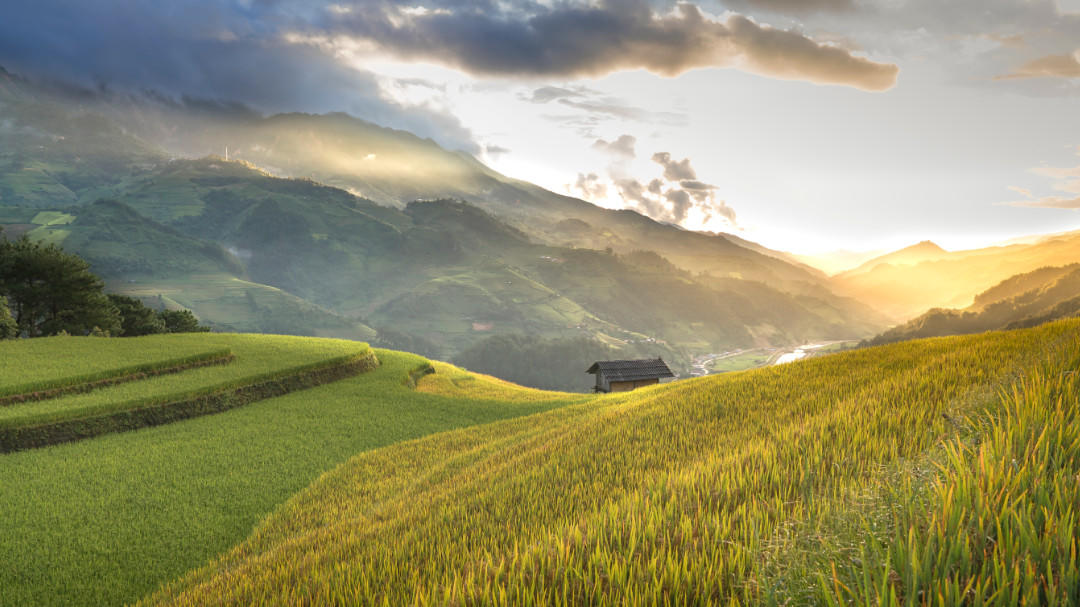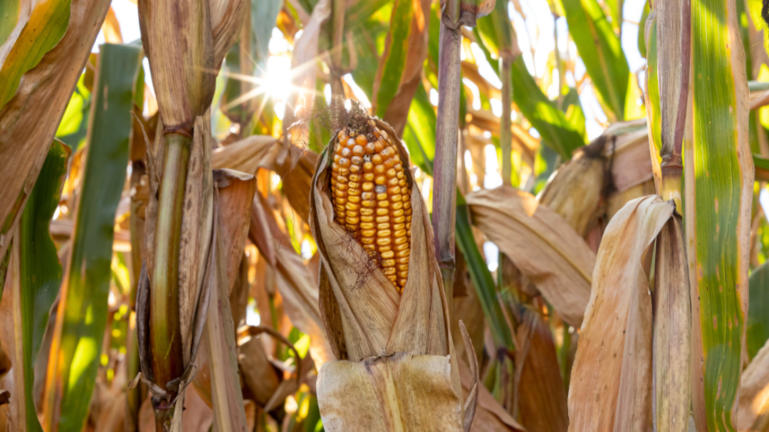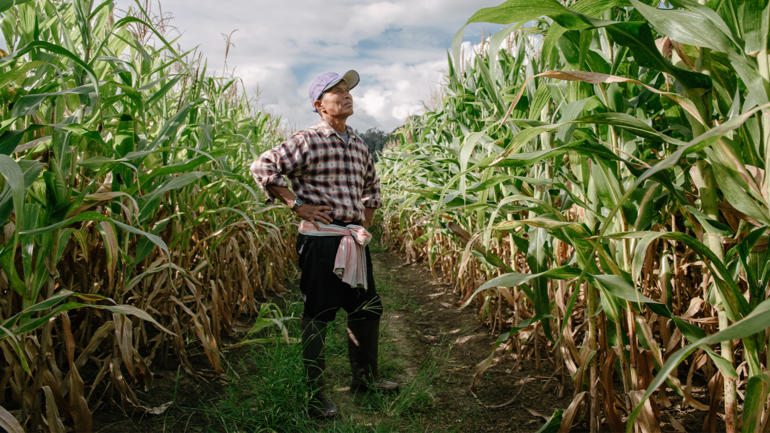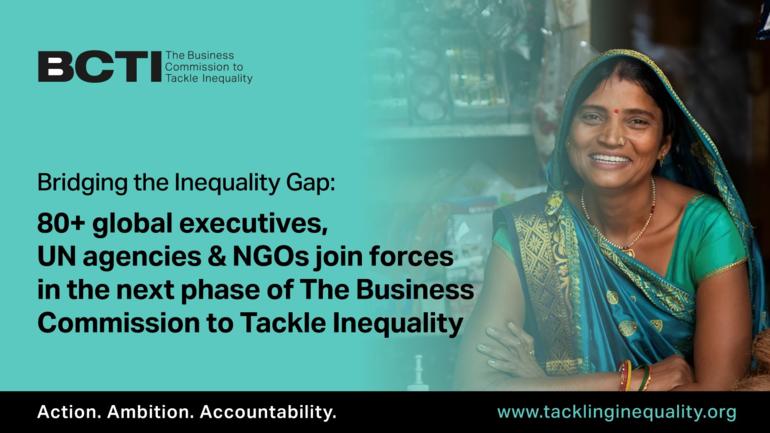Geneva, 24 November 2023 – Today, the World Business Council for Sustainable Development (WBCSD) launched the Mission paper for the RICE+ hub for regenerative ricescapes, in collaboration with member companies and partners, under the auspices of the Sustainable Rice Landscapes Initiative (SRLI).
The RICE+ hub for regenerative ricescapes Mission paper is a call to action to bring together committed companies to drive an action-oriented agenda to tackle the major challenges that inhibit investments in scaling sustainable and regenerative rice-based landscapes (regenerative ricescapes, for short).
Given the unique opportunity for sustainable rice landscapes to deliver solutions for climate mitigation and adaptation, nature recovery, and improving farmer livelihoods while contributing to food and nutrition security, there is an urgent need to target finance and scale up actions in high-impact landscapes.
Significant greenhouse gas emissions reductions and water quantity and quality improvements can be realized from scaling up of sustainable and regenerative rice cultivation practices and approaches. In rice producing landscapes, which are often in biodiversity hotspots, avoided conversion and restoration of natural ecosystems can have substantial positive impacts for nature, climate (from natural carbon sequestration and adaptation), and communities (from ecosystem services). Notable improvements of farmer livelihoods can also be realized from scaling up of sustainable and regenerative rice cultivation practices and approaches - from crop input reduction and labour reduction cost savings, and stabilizing or increasing yields, to increased access to sustainable market and finance opportunities.
The Mission paper provides information about the significant climate, nature and equity positive impact potentials, as well as the emerging opportunities to scale private sector investments and collective action for sustainable rice. It also identifies the range of challenges that currently limits the acceleration of the rice sustainability transition at the scale needed, which include: customized support for rice farmers, transition costs and long-term agreements, sustainability target-setting guidance gaps, barriers to engaging in Voluntary Carbon Markets, and public and private sector investment gaps.
The objective of the RICE+ Hub for Regenerative Ricescapes Mission Paper is to serve as an action plan to facilitate pre-competitive private sector collective actions and investments across the entire rice value chain. These investments and collective actions will accelerate rice-related carbon, climate, nature and Nature-Based Solutions (NBS) investments and project implementation to scale sustainable rice in priority countries and landscapes, starting with a focus on the major rice-producing regions of South and Southeast Asia.
Companies will collaborate to forge public-private investment alliances, adopt high-integrity rice carbon and sustainability standards, facilitate knowledge exchange and promote innovations. Committed companies must establish relevant targets and action plans that they measure and disclose in a credible and transparent manner, and that make a demonstrable contribution to sustainable and regenerative rice production systems and landscapes.
“We call on the private sector across the rice value chain to step up with ambitious targets and strategies that scale and accelerate the adoption of sustainable and regenerative rice production systems and landscapes for clearly defined climate, nature and equity positive impacts through the RICE+ Hub.” Tom Williams, Agriculture & Food Pathway Director
“Delivering the investment needed to spark a transformation toward inclusive, sustainable and resilient rice landscapes at scale requires partnership and engagement across government, private sector, financial institutions, development partners, civil society, research organizations and farming communities. The INVEST action area of the RICE+ Hub will provide an important forum, under the Sustainable Rice Landscapes Initiative, to forge public and private alliances in countries across the region to drive new investment in rice landscapes that will deliver results for communities, nature and the climate." Beau Damen, SRLI Lead for FAO and Natural Resources Officer, FAO Regional Office for Asia and the Pacific.
"Low-carbon agriculture cannot be considered in isolation; holistic approaches maximize sustainability co-benefits to farmers and ecosystems alike. With growing recognition of the need for rice sector transformation to meet the UN Sustainable Development Goals, the Sustainable Rice Platform’s Standard and Performance Indicators offer a quantitative, integrated framework to deliver impact. The RICE+ Hub offers a unique pathway to deliver NBS outcomes at scale through robust and unified approaches to MRV, sustainable best practices and financing, facilitated by the collaborative efforts of the Sustainable Rice Landscapes Initiative (SRLI) consortium partners." Dr. Wyn Ellis, Executive Director, Sustainable Rice Platform.
"Climate goals for GHG mitigation and adaptation, and biodiversity goals for nature recovery, can only be met through broad collaboration between all rice value chain actors - the RICE+ Mission Paper is a groundbreaking blueprint for such collaboration with proposed target-setting approaches and actions that will enable public-private funding to equitably scale impactful solutions." Matthew Reddy, Senior Private Sector Specialist, Global Environment Facility (GEF)
“The need to come together to shape more economically viable and sustainable rice cultivation systems has never been more pressing. Supporting farmers to change rice cultivation practices – most notably to a system based on direct-seeded rice – will help smallholder rice farmers adapt to and mitigate climate change while, at the same time, running a profitable business, improving well-being and, at scale, helping to ensure food security at national and international levels.” Frank Terhorst, Head of Strategy & Sustainability of Bayer’s Crop Science division








